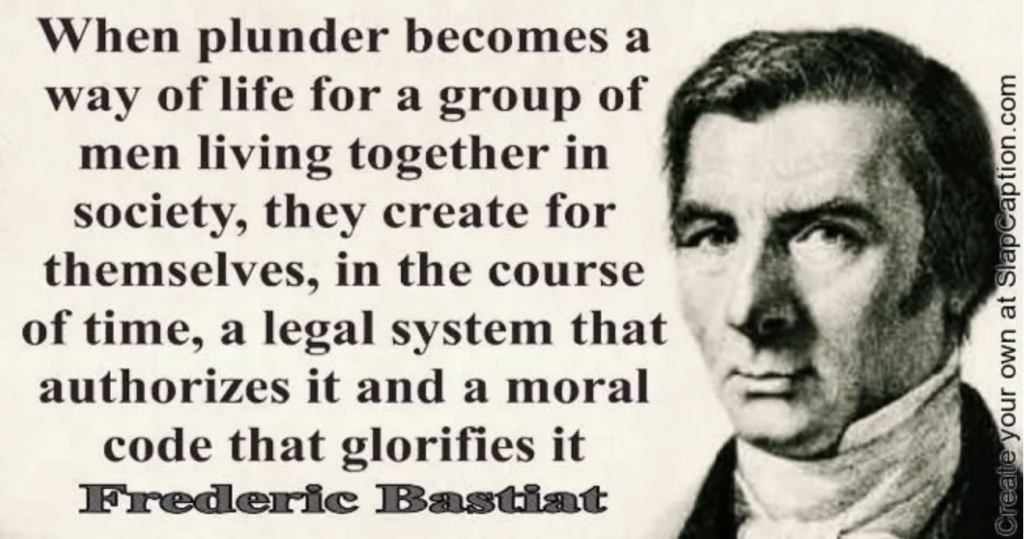
Please Follow us on Gab, Minds, Telegram, Rumble, Gettr, Truth Social, Twitter
Some data – usually indispensable – never seems to make it through the finely spun ideological mesh that clutters our perceptions.
Dominic Pino has written an eye-opening piece for National Review, The Mother of All Fiscal Cliffs, that will, as usual, not open nearly enough eyes.
Pino begins his article provocatively: “The current argument over government funding and the risk of a shutdown is small potatoes. The debt-limit fight over the summer was small potatoes. Even the great ‘fiscal cliff’ of 2012–13 was small potatoes. The mother of all fiscal cliffs is coming in 2025, and we’re not ready for it.”
One hardly needs to point out that 2025 is right around the corner, a year after, most politicians may be relieved to hear, the upcoming 2024 national and state elections. A cliff arriving prematurely before the elections might possibly wash big spenders out of office.
The precipitous cliff has rattled Paul Winfree, an economic historian and president and CEO of the Economic Policy Innovation Center, a new think tank founded to help guide lawmakers on economic issues.
Typically, most of the lawmakers refuse to be guided. “When I talk to members of Congress, one of the responses I get from folks is, ‘Thank you for thinking about this because we don’t have the bandwidth right now to get into this issue.’”
In other words, “Stop rocking the pre-election boat.”
It is not often enough emphasized in news reports and commentaries on national and state economies that the interests of taxpayers and tax spending politicians are often inversely related. The more taxes swept up by politicians the less money available to citizens and national engines of production – i.e. “greedy businesses” and employers. A greedy business is one determined to make a profit to avoid going out of business.
The tax increases harvested by politicians – never enough to discharge our gargantuan national debt, close to $34 trillion – should be viewed as election vouchers. That’s why, in the case of taxes, what goes up rarely comes down. There is no breathing space between U.S. elections.
The income tax was established in 1862 by the U.S. Congress as a measure necessary to fund the Civil War. The act established the office of Commissioner of Internal Revenue, an organ of government charged with the collection of taxes. The act levied excise taxes on most items consumed and traded in the United States. It also introduced the United States' first progressive tax with the intent of raising millions of dollars for the Union. The tax was progressive because it was levied on what many considered the millionaires of President Abraham Lincoln’s day. Today the tax, broadly levied on nearly everyone, certainly not millionaires alone, has trickled down to the masses.
The U.S. government has produced during the administration of tax-and-spend President Joe Biden nearly $5 trillion in new debt. And the aftermath of a tsunami of reckless spending, will hit our shores in 2025. “That represents,” Pino writes, “five times the level of the 2009 stimulus bill responding to the worst economic crisis since the Great Depression, and it’s expected to come in a time of no wars, low unemployment, and a growing economy,” according to wildly optimistic projections by Democrats.
The reckless spending has produced rampant inflation and carved out a fiscal cliff that by 2025 will occasion more debt, more spending -- inflation’s engine -- and a thoughtless continuation of current business regressive economic policies, with an important difference.
“All of the individual-taxpayer provisions of the Tax Cuts and Jobs Act expire on December 31, 2025,” Pino writes. “That means if Congress does nothing, tax rates will increase, the standard deduction will decrease, and the tax burden will increase for most taxpayers. Some of the business provisions of the TCJA will also expire, such as the treatment of cross-border income and payments, bonus depreciation of investments, and opportunity-zone tax credits. The child tax credit will also decrease from a maximum of $2,000 per child to a maximum of $1,000 per child.”
And there’s more. Thus far, greedy politicians have been able to postpone necessary entitlement reform. Entitlements represent our largest national budgetary expenditure.
“Politicians,” Pino notes, “have been largely keeping the bipartisan promise to pretend there’s no need for entitlement reform, but the facts haven’t changed. Medicare and Social Security this year will spend $649 billion more than they take in. Cumulatively, over the next 30 years, they’ll spend $69 trillion more than they take in, according to the CBO. That will require more borrowing, which will create $47 trillion in interest costs, bringing the grand total of the cost of Social Security and Medicare to $116 trillion in new debt over the next 30 years.”
There is no appetite among campaign conscious politicians for spending and tax reform. Pino concludes, “… at our current pace, the mother of all fiscal cliffs [due to arrive in 2025] will look like small potatoes by 2035, which will look like small potatoes by 2045…”
Wilkins Micawber put all this in a single sentence when he instructed David Copperfield “Annual income twenty pounds, annual expenditure nineteen, nineteen and six, result happiness. Annual income twenty pounds, annual expenditure twenty pounds ought and six, result misery.”
Here is a message that applies both to individuals and states: It’s not how much you make in income that is important, but how much you spend. Spending a penny over income, the result is misery – and cliffs.

Brilliant grasp of the obvious. We need solutions, not "pointer outers" 😐